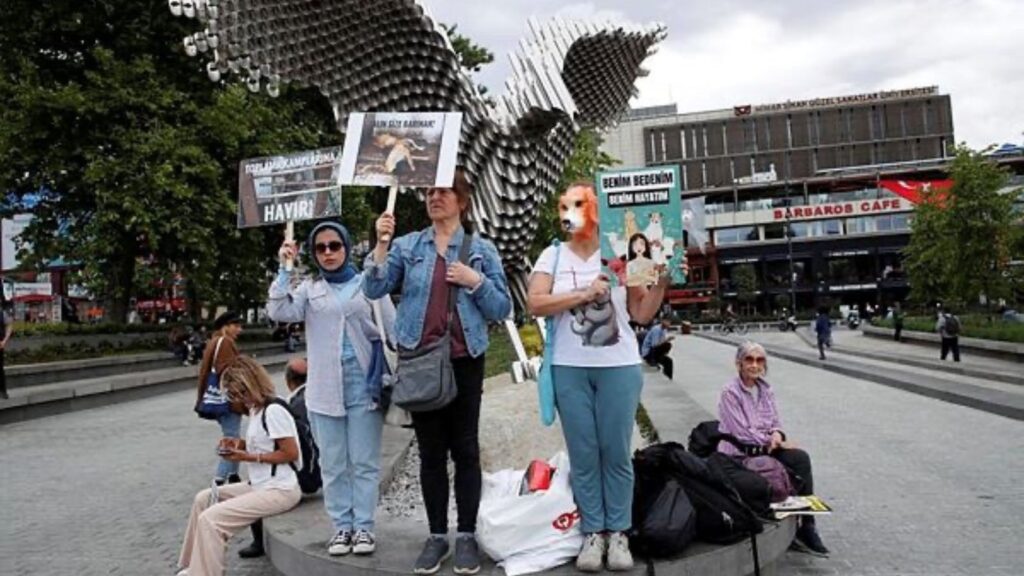Nirgul Sayar drives into the countryside near Istanbul and the dogs rush up to greet her as she offers food. She is one of many Turks who have fallen in love with Turkey’s estimated 4 million stray dogs, whose fate is now in the hands of the government.
Citing concerns about attacks, road accidents and rabies, the Turkish government has drafted a bill to remove dogs from the streets, irritating Turkish animal rights activists who fear many of them will be euthanized.
The bill, which is due to be presented to parliament within days, has also been opposed by the largest opposition party, which is staunchly opposed to culling dogs.
Sayer and other activists say the plan is unworkable, blaming authorities for a surge in dog numbers due to a lack of neutering programs over the past two decades.
“They say they take dogs off the streets, but we can’t afford to take them all,” she said at a shelter she set up for dogs that would otherwise not be able to survive in the countryside, where she also looks after stray dogs – many of which are disabled, elderly or abandoned.
Pro-government media have highlighted the dog attacks, saying the bill envisages euthanasia of stray dogs after 30 days in shelters, but a survey by pollster Metropoll found that only 2.7% of respondents supported euthanasia.
Love for stray animals is widespread in Türkiye.
One dog, Boj, became famous as a regular on Istanbul’s ferries, another, Tommy, has been immortalized in a bronze statue, and many people leave food and water for dogs and cats.
President Tayyip Erdogan on Wednesday sought to allay concerns about the dogs being culled.
“Our hope is that every animal that is taken into the shelter will be adopted,” he told council. “If we can achieve this, we don’t think the next step will be necessary.”
However, there are enormous challenges in terms of space in dog shelters, neutering procedures, and finding owners for them.
Istanbul Municipality has been running a campaign to house stray dogs, and Dilara Berk, a veterinarian at the Animal Rehabilitation Center, said interest in the scheme was growing.
The Semtopati app features photos and information about the dogs, but the scale is limited: 375 dogs are expected to be adopted under the scheme in 2023, with a further 103 adopted so far this year.
Growing complaints
Erdogan said the government was responding to complaints about stray dogs, and he spoke out about the need for action after a 10-year-old boy in Ankara in December was seriously injured by a stray dog.
The boy was released from hospital three months later and his father, Halil Yilmaz, said his son continues to receive daily treatment and is due to undergo further surgery in July.
“We don’t want stray dogs to be left on the streets. Dogs that are aggressive or have rabies or other diseases should be euthanized,” he said.
“I am against euthanizing healthy dogs as long as it makes our streets safer,” she said, arguing that dogs should be kept in shelters.
The government also said there had been 3,500 road accidents caused by collisions with animals in the past five years, citing the increased risk of rabies. State media, citing a government survey, reported that 83.6 percent of respondents considered stray dogs a problem.
But activists recall a disastrous attempt to tackle the problem in 1910, when 80,000 dogs were sent to an island off the coast of Istanbul, where they died of hunger, thirst or killed each other.
Ahmet Kemal Senporat, president of the Animal Rights League, said the solution was a nationwide neuter campaign. “We want to reduce the animal population, but we want to do it in a humane way,” he said.
In recent years, an average of 260,000 dogs have been neutered per year, but that’s not enough to make a big impact.


